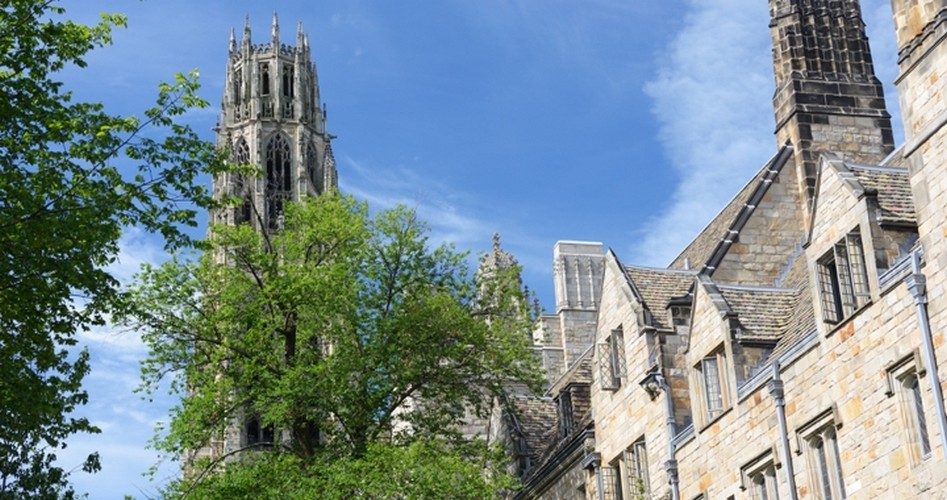
Yale University is the latest school to make the problem of “whiteness” an academic subject.
Yale University, one of America’s prestigious Ivy League institutions, is offering a course this semester designed to guide students through an examination of the “construction and counternarratives around whiteness.”
As reported by TheCollegeFix.com, the goal of the new course is to “help students understand and counteract ‘whiteness,’ exploring such topics as ‘white imagination,’ ‘white property’ and ‘white speech.’”
The course, entitled “Constructions of Whiteness,” is being offered by Yale’s English department, which describes the class as an “interdisciplinary approach to examining our understanding of whiteness.” Taught by Professor Claudia Rankine, the course will deal with whiteness “as a culturally constructed and economically incorporated entity, which touches upon and assigns value to nearly every aspect of American life and culture.”
According to the syllabus, the focus of the course is to “create a lab for the construction of counternarratives around whiteness in any creative form: play, poem, memoir, etc.” The syllabus goes on to explain that the class is divided into eight topics: “Constructions of Whiteness, White Property, White Masculinity, White Femininity, White Speech, White Prosperity, White Spaces, and White Imagination.”
Among the required reading for the course, TheCollegeFix.com reported, are Michael Kimmel’s Angry White Men: American Masculinity at the End of an Era, Richard Dyer’s White: Essays on Race and Culture, and Richard Delgado’s and Jean Stefanic’s Critical White Studies: Looking Behind the Mirror.
Students will also read “The White Card,” a play by Professor Rankin that uses a contrived plot to pose the question, “Can American society progress if whiteness stays invisible?”
For those not entirely sure what the term “whiteness” actually means, another prestigious institution, the University of Calgary, provides this explanation from the 2006 work The Colour of Democracy: Racism in Canadian Society: “The power of Whiteness … is manifested by the ways in which racialized Whiteness becomes transformed into social, political, economic, and cultural behaviour. White culture, norms, and values in all these areas become normative natural. They become the standard against which all other cultures, groups, and individuals are measured and usually found to be inferior.”
Another author quoted by Calgary U opines that “Whiteness is a constantly shifting boundary separating those who are entitled to have certain privileges from those whose exploitation and vulnerability to violence is justified by their not being white.”
Capitalizing on perceived racial inequality has apparently become a trend in higher education. At the University of Wisconsin-Madison, Professor Damon Sajnani (who is white) teaches a course entitled “The Problem of Whiteness,” which seeks to help students “understand how whiteness is socially constructed and experienced in order to help dismantle white supremacy,” the course description reads.
Similarly, California’s Stanford University offers a course entitled “White Identity Politics,” which has students ruminating over such issues as the “possibilities of abolishing whiteness.”
And last December a workshop at the University of Michigan helped employees deal with the “discomfort” of being white, as well as to “recognize the difficulties they face when talking about social justice issues related to their white identity, explore this discomfort, and devise ways to work through it,” according to the workshop syllabus.
Photo of Yale University: aimintang/iStock Unreleased/Getty Images Plus



